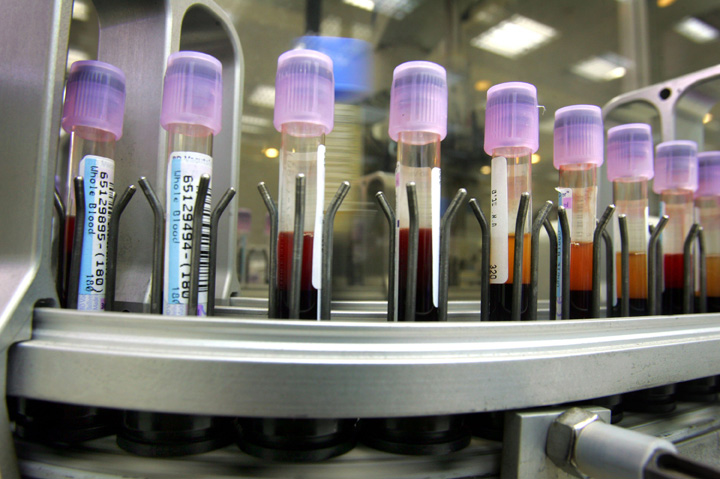A suspect in a B.C. impaired driving investigation recently launched an unsuccessful attempt to get his blood samples back.

The unnamed man appeared in B.C. Supreme Court in New Westminster in April of this year, seeking the return of blood taken from him at Royal Columbian Hospital following a single vehicle crash in Surrey on Feb. 19, 2017.
RCMP seized the suspect’s blood vials from the hospital on Feb. 24, 2017. On March 1, 2017, a Justice of the Peace granted a detention order, allowing the samples to be kept until May 23, 2017.
A June 15 Supreme Court judgment states that in late April 2017, RCMP seized the suspect’s health records and learned that a toxicology test indicated his “blood alcohol concentration to have been high on the date of the accident and that cannabis was also detected and referenced as high.”
The ruling states that the two vials of blood were then sent to the RCMP forensic lab where analysis took longer than expected.

Get daily National news
A Crown application to keep the blood longer was supported by RCMP, who submitted an affidavit stating: “further detention is crucial because of its evidentiary value” and that “The vials of blood drawn from XXXXX by hospital staff provides evidence that he was impaired by alcohol at the time of the collision.”
- Cowichan case blamed for sinking B.C. property deals, including luxury hotel purchase
- One of Kimberly Proctor’s killers denied parole again, board believes he is still a risk
- Egypt and Iran protest Seattle FIFA match over Pride celebrations
- Highway 1 east of Golden, B.C. closed due to crash, snowy weather
Ultimately, Justice Robert W. Jenkins ruled in favour of the Crown and refused to return the blood samples to the suspect. “There is no reason given in the matter before me of ‘the exact nature of their need for return’ and it is difficult to imagine what possible need the suspect may have for the same,” he wrote in his judgment.
Criminal lawyer Kyla Lee told Global News there are many unusual reasons why a person might want their blood back.
“Obviously, there’s sort of the general paranoia that some people have about the government having their blood. There may be concerns by this individual that there are connections between his blood and unsolved crimes and he or she doesn’t want that to be connected up, although it’s unlikely that that would actually happen or that the blood would be used for that purpose,” she said.
The request, added Lee, was more likely an attempt to thwart the impaired driving investigation.
“Because blood sample testing has to take place within certain periods of time in order for the samples to be reliable and because in this case the samples were taken and tested outside that general period of time, one argument he could make if he got them back was that the government never should have had them in the first place for as long as they did and that the results of the testing shouldn’t be admissible in court.”
Justice Jenkins ended up granting the Crown’s application to detain the suspect’s blood for a period of up to 18 months from the date it was seized, in connection with a possible prosecution for impaired driving.








Comments